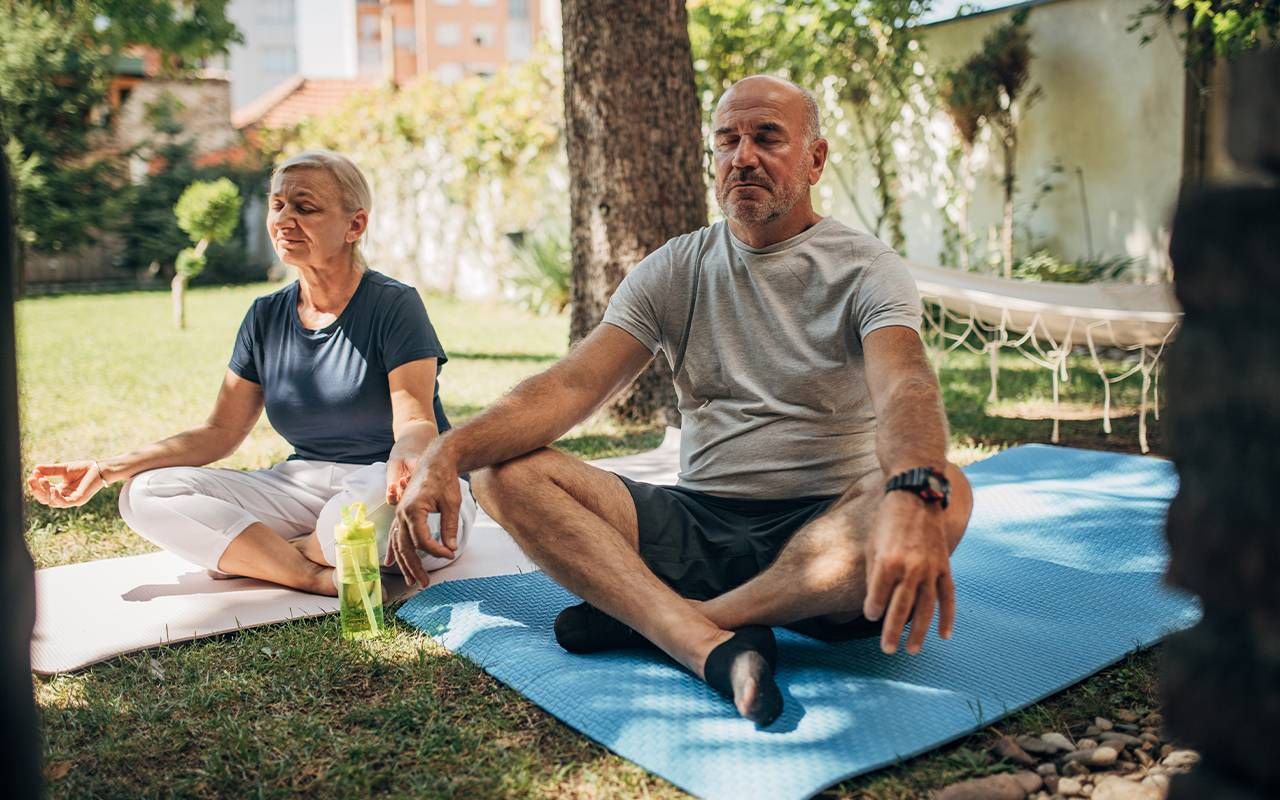Mixed Messages on Meditation and Mindfulness
If mindfulness attracts you, try it out, but do so with your eyes wide open before you close them to meditate
We've been told lately that mindfulness, in the form of various kinds of meditation including body-scan meditation, loving-kindness meditation, walking meditation, and, of course, mindfulness meditation, can fix almost anything that is wrong with us.
Enter migraines, depression, nausea, chronic pain, anxiety, recovering from substance abuse, sleep problems, and, most of all, stress. Celebrities like Dan Harris and scientists like Sam Harris (no relation) have expounded on its beneficial effects.

What Does Research Say?
If you Google search "meditation research," you'll get a LOT of hits (when I did it, I got 177 million in less than a second, no kidding).
The top one was for a page called "Meditation & Mindfulness: What You Need to Know" on the Health Information website for the National Center for Complementary and Integrative Health, a part of the National Institutes for Health (NIH), which itself is part of the U.S. Department of Health and Human Services.
If you Google search "meditation research," you'll get a LOT of hits (when I did it, I got 177 million in less than a second, no kidding).
I clicked a link for "8 Things to Know About Meditation and Mindfulness," which took me to a very informative page addressing the effects of mindfulness on some of the things I mentioned in the first paragraph.
Here are two statements that stood out to me:
"Mindfulness-based practices may be helpful for anxiety and depression. They are better than no treatment at all, and they may work as well as established evidence-based therapies such as cognitive behavioral therapy."
"Studies that looked at the effects of meditation or mindfulness on pain have had mixed results. The evidence for a beneficial effect on chronic pain is better than the evidence for an effect on acute pain."
How Does 'Evidence Based' Apply?
Both of these point to the fact that meditation, or any mindfulness practice, really can't be considered genuinely evidence-based when it comes to the claims made on the backs of self-help book covers, such as "Full Catastrophe Living" by Jon Kabat-Zinn.
A statement like "medically proven" implies that the research behind it is rock solid, unimpeachable and supported by lots of actual experiments.
His work boldly claims that it "shows you how to use medically proven mind-body approaches derived from meditation and yoga to counteract stress" and realize a string of other benefits.
A statement like "medically proven" implies that the research behind it is rock solid, unimpeachable and supported by lots of actual experiments. And that's not necessarily true about meditation, yoga or any other mindfulness practice.
On the web page for UMass Memorial Health's Center for Mindfulness, founded by Kabat-Zinn, there is a FAQ with "a partial list" of the various "medical and psychological conditions" for which Mindfulness-based Stress Reduction (MBSR) may "compliment" treatment.
Each provides a reference link to a study supporting the claim. One that I looked at (for HIV treatment side effects) was a pilot study, which is essentially a proof of concept for a future, usually a more extensive study, and isn't to be considered confirming evidence for its findings.
Claims by individuals about how mindfulness meditation has helped them are anecdotal evidence and should be regarded skeptically. For example, Tony Horton, whom I respect enormously as the fitness guru who created the highly popular P90X workout video series, stated unequivocally in an interview I did with him for a Next Avenue story that "Full Catastrophe Living" had helped him recover from Ramsay Hunt Syndrome and Bell's Palsy.
It's worth noting that if a single research paper doesn't support a specific benefit of a mindful practice, it doesn't necessarily mean that benefit is nonexistent.
I'm sure it did help him. However, the claims made in the book still need to be scientifically validated.
Indeed, the claim that a body-scan meditation helped a woman uncover so-called repressed memories isn't validated (there's no such thing as repressed memories; this Freudian concept was debunked back in the '70s by psychological scientists Elizabeth Loftus, yet it appears in the 2014 edition of Kabat-Zinn's book).
Such declarations increase the noise-to-signal ratio, obscuring actual, credible information about the benefits of mindfulness meditation. Moreover, they make it harder to learn what may or may not be helpful. Can this be harmful? You bet it can.
Putting time, effort and money into a practice based on bogus claims means wasting that time, effort and money. You may be able to get your money back, but what about your time and effort? None of this means that mindfulness practice, whatever form that may take, won't benefit you somehow, though.
With mindfulness so popular now, there will be a lot of misinformation out there about what it can do for you. It's always good to double-check treatment claims for any health-related issue. If reading research papers isn't your thing, which I get since they can be dense, very technical and therefore difficult to understand, there are plenty of credible sources of information.
The NIH provides a consumer-oriented website, MedlinePlus.org, and CDC.gov. I also check the Cleveland Clinic, the Mayo Clinic, and Healthline websites.
It's worth noting that if a single research paper doesn't support a specific benefit of a mindful practice, it doesn't necessarily mean that benefit is nonexistent. Instead, it means that careful research has found no substantial evidence to support it. That benefit may or may not exist.
If mindfulness attracts you, if you feel drawn to it for whatever reason, try it out. Just do so with your eyes wide open before you close them to meditate.


